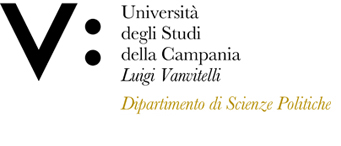Valerio GIANNATTASIO
Insegnamento di HISTORY OF INTER-AMERICAN RELATIONS
Corso di laurea magistrale in RELAZIONI E ORGANIZZAZIONI INTERNAZIONALI
SSD: SPS/05
CFU: 8,00
ORE PER UNITÀ DIDATTICA: 48,00
Periodo di Erogazione: Secondo Semestre
Italiano
| Lingua di insegnamento | Inglese (eventuali seminari o lezioni potranno essere in spagnolo, italiano o francese) |
| Contenuti | Il corso si propone di fornire agli studenti gli strumenti storici, analitici e metodologici per una conoscenza approfondita delle dinamiche delle relazioni interamericane dagli inizi dell’800 fino ai giorni nostri. L’intento sarà quello di rendere possibile il conseguimento di un solido bagaglio di conoscenze relativo alle principali caratteristiche, nonché passaggi e snodi fondamentali delle relazioni intercorse fra le varie nazioni del continente, incoraggiando uno studio consapevole e critico da parte dello studente. Particolare attenzione verrà data al rapporto fra Stati Uniti e paesi dell’America Latina, evidenziando, in particolare, linee di tendenza, fattori di continuità e di discontinuità della relazione dalla “Dottrina Monroe” sino ai giorni nostri. In tal senso si insisterà sulle caratteristiche che tali relazioni hanno assunto durante la guerra fredda, si darà conto della dimensione globale della Guerra fredda e dei suoi risvolti in ambito latinoamericano, soffermandosi su quanto la presenza di un attore egemone nel contesto americano abbia influenzato non solo l’equilibrio emisferico, ma anche lo stesso processo storico dei singoli attori nazionali, anche da un punto di vista culturale e non esclusivamente politico. Si insisterà, quindi, sulla dimensione anche culturale che quella contesa ha avuto in America Latina e sui progetti dispiegati dagli USA nella Guerra globale al comunismo. |
| Testi di riferimento | Gregory B. Weeks – Michael E. Allison, U.S. and Latin American Relations, Cambridge, Cambridge University Press, 2022 (III Ed.). |
| Obiettivi formativi | Conoscenza e capacità di comprensione |
| Prerequisiti | In ragione della complessità degli argomenti proposti, il presente corso deve prevedere una buona conoscenza di base degli avvenimenti e dei processi storici dell’età contemporanea e delle relazioni internazionali. |
| Metodologie didattiche | Il presente corso combina lezioni frontali e lezioni interattive nelle quali gli studenti contribuiranno all’illustrazione di parti del programma attraverso un loro contributo di analisi. |
| Metodi di valutazione | Alla fine del presente corso è prevista una prova orale. |
| Altre informazioni | Non ci sono propedeuticità relative al presente corso. Tuttavia è consigliabile aver sostenuto almeno un esame di storia (moderna, contemporanea o delle relazioni internazionali) al triennio. |
| Programma del corso | - Stati Uniti e America Latina dalla Dottrina Monroe all’espansione definitiva del territorio USA; 0,5 CFU |
English
| Teaching language | English (possible seminars or lessons, may be in Spanish, Italian or French) |
| Contents | The course aims to provide students with historical, analytical and methodological tools for an in-depth knowledge of the dynamics of inter-American relations from the early 1800s until today. The intent will be to make it possible to achieve a solid capital of knowledge relating to the main characteristics, as well as fundamental passages of the relations between the various nations of the continent, encouraging a conscious and critical study by the student. Particular attention will be given to the relationship between the United States and Latin American countries, highlighting, in particular, trend lines, continuity and discontinuity factors of that relationship from the "Monroe Doctrine" to the present day. In this sense, we will insist on the characteristics that these relationships assumed during the Cold war, we will take into account the global dimension of the Cold War and its implications in the Latin American context. focusing on how the presence of a hegemonic actor in the American context has influenced not only the hemispherical equilibrium, but also the historical process of the national actors, also from a cultural and not exclusively political point of view. Therefore, emphasis will be placed on integration processes during and after the Cold War. It will therefore focus on the cultural dimension that that dispute had in Latin America and on the projects developed by the USA in the global war on communism. |
| Textbook and course materials | Gregory B. Weeks – Michael E. Allison, U.S. and Latin American Relations, Cambridge, Cambridge University Press, 2022 (III Ed.). |
| Course objectives | Knowledge and understanding |
| Prerequisites | Due to the complexity of the proposed topics, this course must provide a good basic knowledge of the events and historical processes of the contemporary age and international relations. |
| Teaching methods | This course combines lectures and interactive lessons in which students will contribute to the illustration of parts of the program through their analysis contribution. |
| Evaluation methods | An oral exam is scheduled at the end of this course. |
| Other information | There are no prerequisites regarding this course. However it is advisable to have taken at least one history (modern, contemporary, international relations) exam in the three-year degree. |
| Course Syllabus | - United States and Latin America from the Monroe Doctrine to the definitive expansion of the US territory; 0,5 CFU |








